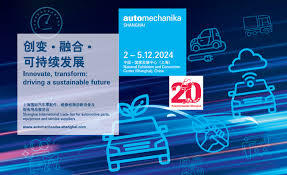
dSPACE Inc, is the Michigan-based subsidiary of the German dSPACE, which is a leading manufacturer of engineering tools for embedded controller development and testing. The company provides integrated hardware and software for prototyping control algorithms, automatic generation of production code, controller testing and calibration and engineering support services. The company’s products help manufacturers of controllers and electronic control units or ECUs to reduce development cycle times and costs.
Last year, dSPACE introduced its RapidPro System, which helps improve integration of automotive sensors and actuators, which is a key requirement in rapid control prototyping or RCP, for electronic control unit functions. DaimlerChrysler, used RapidPro along with dSPACE’s MicroAutoBox, for Active Body Control.
The company says that the RapidPro System is compact, robust and modular, as well as extremely efficient for adapting to changing requirements and reuse in new projects. It has three different units, which can be equipped with software and hardware-configurable modules for signal conditioning and actuator drivers.
The RapidPro System can be used together with the dSPACE prototyping platforms (MicroAutoBox and AutoBox) to develop control applications for engine, transmission, vehicle dynamics, body electronics, drives and others. They can be used in a vehicle, in a laboratory or on a test bench. RapidPro is also available as a stand-alone prototyping ECU with MPC5554 microcontroller. This RapidPro variant together with dSPACE’s software for production code generation (TargetLink) is an ideal close-to-production prototyping environment. The company’s PC software called ConfigurationDesk provides fast, intuitive configuration of all RapidPro’s hardware parameters, as well as diagnostics.
The RapidPro system includes a flexible power stage unit designed to support high current signals for driving actuators with an output current of up to 60 Amps, dependant on the configuration for a complete ECU solution. The RapidPro Power Unit enables the adaptation of many different types of actuators (for example, drives, injectors, valves, relays, etc.) to specific prototyping systems. The RapidPro Power Unit is highly modular and can accommodate up to 48 power driver channels.
The RapidPro SC (Signal Conditioning) Unit in conjunction with standard SC modules or customer-specific modules, lets customers adapt to almost any type of sensor (for example, temperature, pressure, and crankshaft and camshaft sensors) to specific prototyping systems. Like all the Rapid Pro units, the RapidPro SC Unit is highly modular, flexible, intelligent, and especially designed for rapid prototyping in automotive applications. Two other new signal conditioning modules, an exhaust gas oxygen sensor and a knock detection sensor, provide a whole range of extra prototyping features for engine management applications.
Some of dSPACE’s automotive customers include: GM, Ford, DCX, Delphi, Visteon, Honda, ISUZU, Hyundai, Renault, BorgWarner, Bosch, Continental, Volkswagen, AFT, HINO Motors, Ricardo and BMW. Automotive Industries spoke to Kevin Kott, president of dSPACE Inc, and asked him how the company’s products have helped change the design of automobiles.
AI: What are some of the major benefits for automotive companies in using dSPACE’s products in terms of design and development?
Our products are used to develop, verify and calibrate ECU software and systems. Our customers benefit by producing systems faster and ultimately with higher quality than if they used more traditional development methods. Automotive features are becoming more and more software dependent, and as a result, exceptionally complex. Without the tools and simulation systems that dSPACE produces, these tasks would be much more difficult.
AI: How popular are your products in North America? And in the rest of the world?
Certainly dSPACE technology was used more extensively first in Germany, where automotive ECU network complexity developed earlier than in the USA. However, use in the USA has grown and our Rapid Control Prototyping systems and Hardware-in-the-Loop simulators are now the de-facto standard among auto OEMs in the USA and around the world.
AI: Please give us an example of how dSPACE’s newest technology RapidPro has been put to use by an auto company.
DaimlerChrysler used dSPACE’s RapidPro system to develop its Active Body Control (ABC) controller function. Specifically, RapidPro was used to condition the transverse acceleration, pressure, body acceleration and level sensors, as well as to compute the actuator signals for electro-hydraulic spring struts. The modular design of the RapidPro system enabled DaimlerChrysler to make requirements changes with minimum effort. This feature also made it possible for DaimlerChrylser to reuse components in vehicle tests for other development projects. Additionally, DaimlerChrysler was able to execute its complex I/O tasks with the use of an external microcontroller (the RapidPro Control Unit), freeing up the system’s main processor.
AI: What are some of the new products we can expect from dSPACE over the next few years?
We take pride in introducing products that are well tested, robust, error free, and leading-edge in terms of technology and customer usability. In most of our product lines, we lead the industry in feature-rich products. Therefore, we do not announce new products until shortly before introduction. I can say that if you look at each of our existing product lines, you will see customer desirable features being added on a regular and continuous basis.
AI: What kind of presence does dSPACE have in developing markets such as Asia, and what are your plans for growth in these markets?
We are already well established in Asia with one of our largest, wholly-owned subsidiaries in Japan. Additionally, we have long-established distributors in India, China, Korea, and Taiwan. As Automotive OEMs and suppliers add ECU development activities in these countries, we are there to support them.














More Stories
Shaping the future of the automotive industry at Automechanika Shanghai 2024 with the most fringe programme events and speakers yet
Some Ways How Motorists End Up in Collisions at U-Turns
Maximise Margins with Proven PPF Tactics